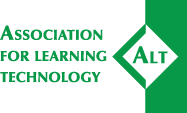Gardner‐Medwin, A. R. (1995) Confidence assessment in the teaching of basic science. Association for Learning Technology Journal, 3 (1). pp. 80-85. ISSN 0968-7769
|
PDF
Available under License Creative Commons Attribution Non-commercial No Derivatives. Download (355kB) | Preview |
Abstract
A scheme is described for including information about confidence in the computer‐based assessment of students. After each answer, students declare a confidence level of 1, 2, or 3. If the answer is correct, then this is the mark awarded. If not, marks of 0, ‐2, or ‐6 are awarded Students do well on this scheme if they can discriminate between when they are sure of correct answers and when they are partly guessing. In self‐assessment, students are trained to reflect on their reasoning, and to develop the skills of correct confidence judgement. The task of writing tests is simplified, since it becomes less important to ask complex questions. Simple direct questions discriminate better between students than they do with ordinary marking. Good students answer correctly with high confidence, while weak students moderate their confidence level if they know they are uncertain, or else lose heavily when they make mistakes. Preliminary data are presented from self‐assessment trials amongst medical students.
| Item Type: | Article |
|---|---|
| Subjects: | L Education > LB Theory and practice of education L Education > LC Special aspects of education > LC1022 - 1022.25 Computer-assisted Education |
| Divisions: | ALT-J Journal |
| Depositing User: | Justin Smith |
| Date Deposited: | 10 Apr 2009 09:51 |
| Last Modified: | 04 Apr 2011 09:25 |
| URI: | http://repository.alt.ac.uk/id/eprint/176 |
Actions (login required)
 |
View Item |
